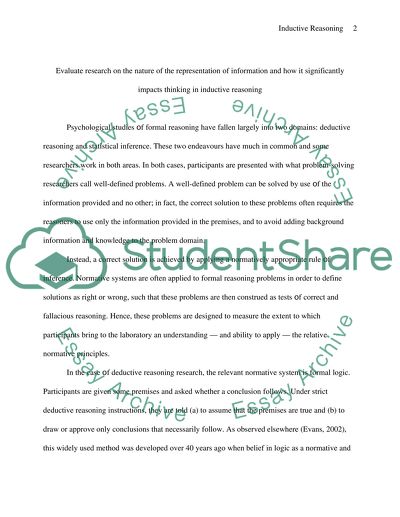Cite this document
(The Nature of Representation of Information: Inductive Reasoning Essay, n.d.)
The Nature of Representation of Information: Inductive Reasoning Essay. https://studentshare.org/psychology/1514871-inductive-reasoning
The Nature of Representation of Information: Inductive Reasoning Essay. https://studentshare.org/psychology/1514871-inductive-reasoning
(The Nature of Representation of Information: Inductive Reasoning Essay)
The Nature of Representation of Information: Inductive Reasoning Essay. https://studentshare.org/psychology/1514871-inductive-reasoning.
The Nature of Representation of Information: Inductive Reasoning Essay. https://studentshare.org/psychology/1514871-inductive-reasoning.
“The Nature of Representation of Information: Inductive Reasoning Essay”. https://studentshare.org/psychology/1514871-inductive-reasoning.


